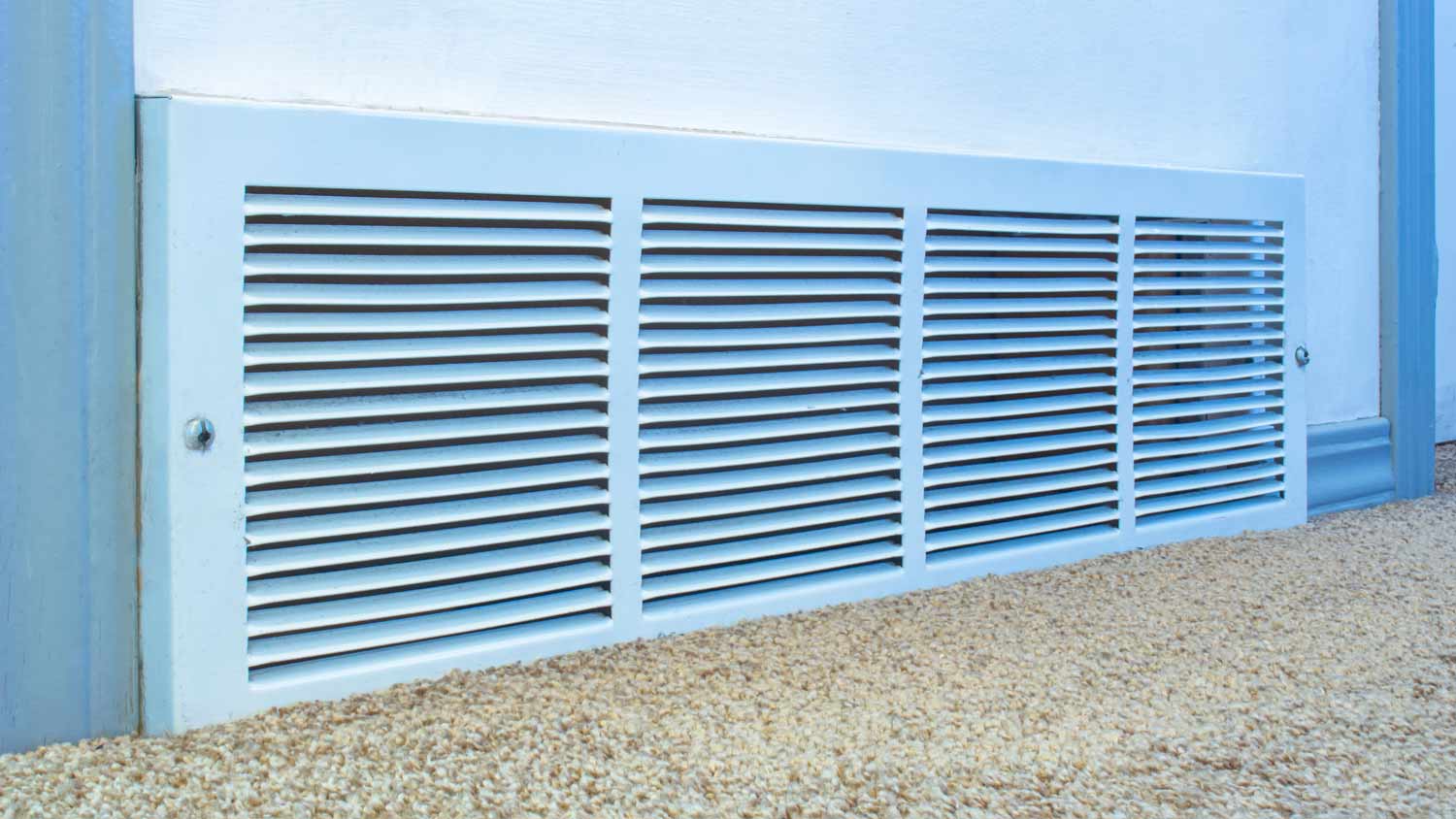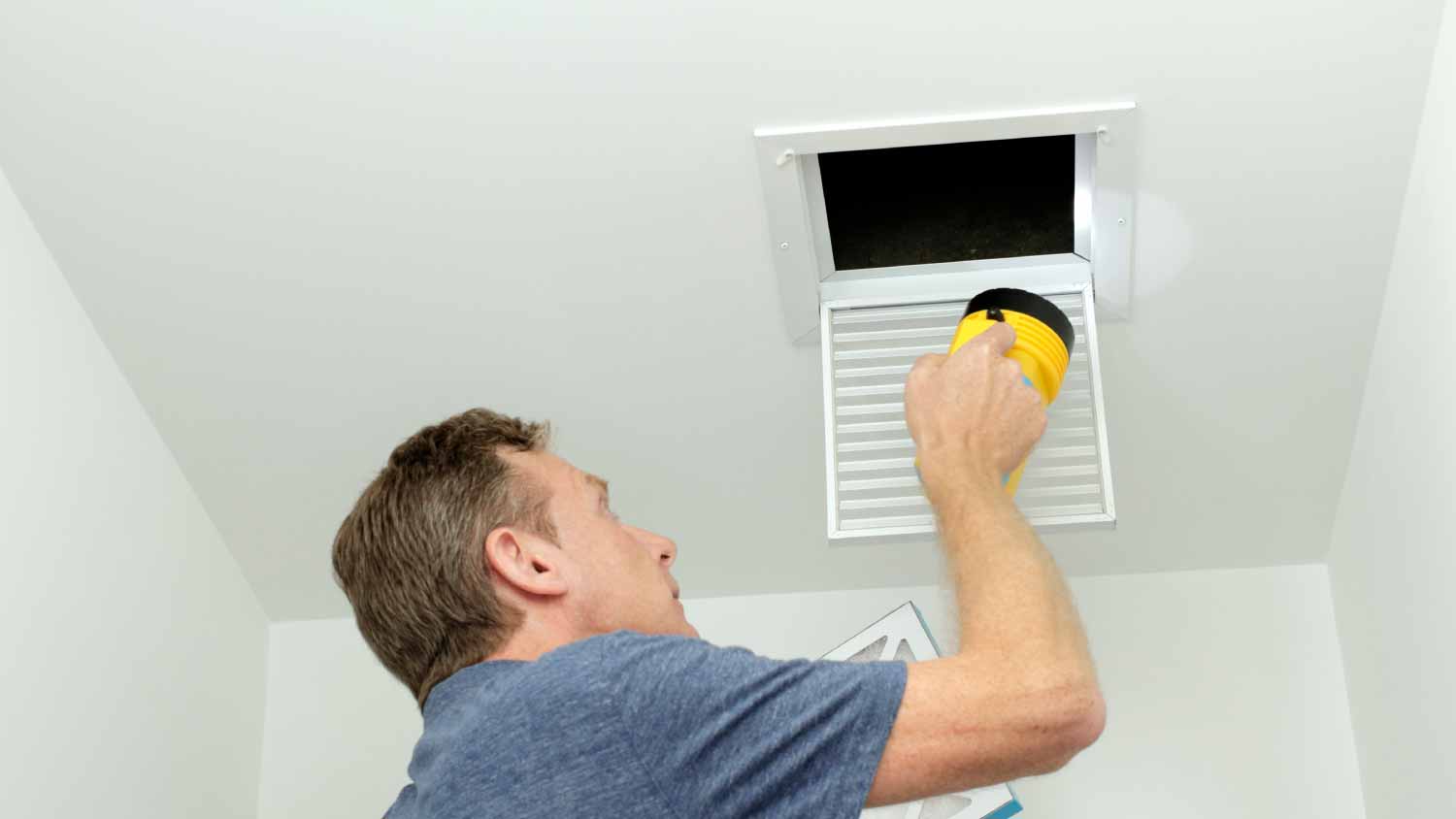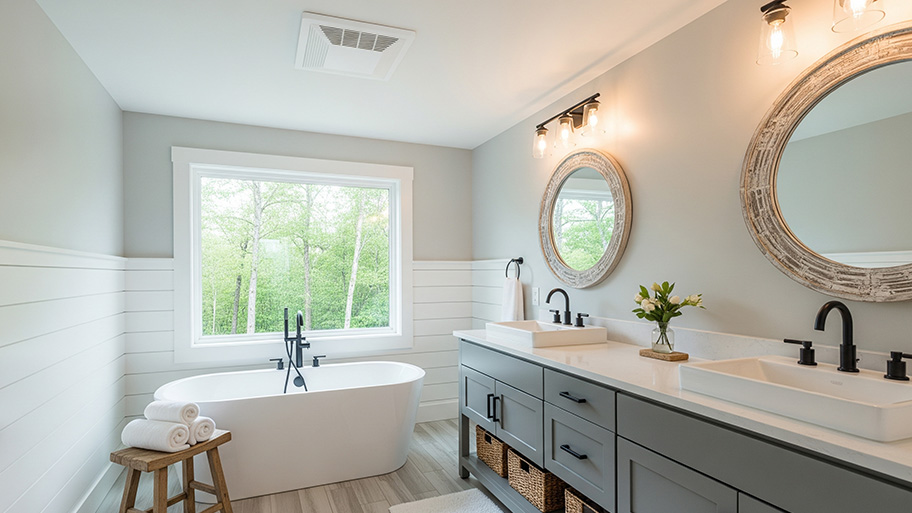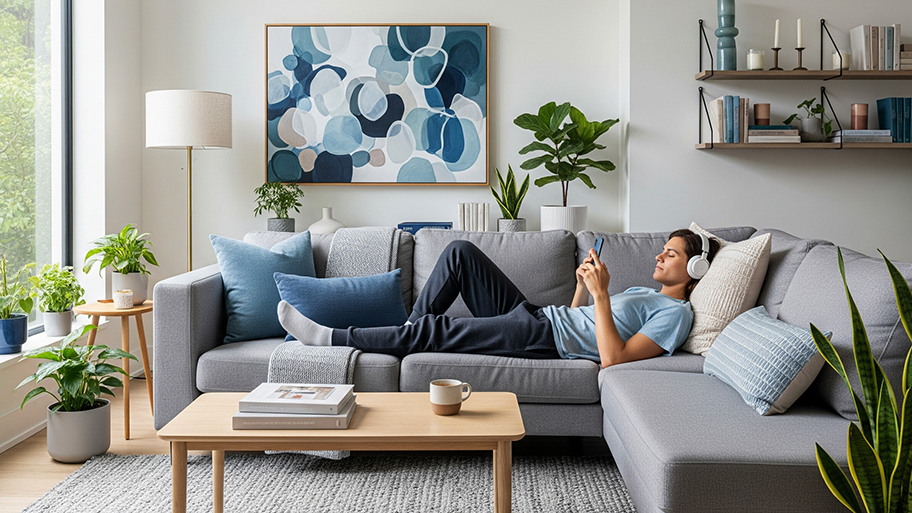
Curious about air duct cleaning costs? Get insights into pricing factors, benefits, and how to tell when it’s time for a good cleaning.
Whole-house air purifier costs range from $419 to $4,962, with an average of $2,610 depending on house size and filter type.


The cost to install a whole-house air purifier ranges between $59 and $12,000, with an average cost of $2,610.
While a basic portable filter will run you between $100 and $1,000, a higher-end HEPA filter will cost between $2,000 and $5,000 or more.
If your air purifier installation requires ductwork or system changes, expect to pay an HVAC professional $100 to $250 per hour for their service.
Installing a whole-house air purifier costs $419 to $12,000, though most homeowners spend an average of $2,610. The price depends on several factors, though the type of filter you choose is significant. Portable air purifiers can cost as little as $59, while a state-of-the-art purifier with HEPA filtration can cost as much as $12,000.
While the size of your home plays a role in the cost of a whole-house air purifier, your home's floor plan has the greatest impact. Purifying the indoor air of a large home will require a more extensive system than a home under 2,000 square feet. Larger homes may require additional equipment to ensure proper air circulation, such as adding in-duct air purifiers, which can increase the price by a larger margin.
The type of filtering system you choose will significantly impact the price. While each type can help improve indoor air quality, with many able to reduce allergen exposure in the home, various filter types have different capabilities. Some, like electronic and UV light filters, use methods other than mechanical filtering to remove airborne contaminants.
| Filter Type | Average Cost Range |
|---|---|
| Portable filter | $100–$1,000 |
| Flat filter | $100–$250 |
| Extended media filter | $500–$1,000 |
| Electronic filter | $600–$2,400 |
| UV light filter | $750–$3,500 |
| HEPA filter | $2,000–$5,000+ |

Specific purifiers vary by efficiency and performance, further impacting how much the system will cost.
Portable air purifiers, which can be used without tapping into the home's HVAC system, are available in a wide range of types, styles, sizes, and prices. You can use one in a single room or move it around the home as needed. Additionally, many purchase portable systems for each room where air treatment is necessary. Prices range from around $100 to $1,000. Portable filters vary widely in their ability to capture various contaminant sizes.
Flat filter air purifiers replace your HVAC system's air filters with one that's more robust and can capture finer particles. These filters cost between $100 and $250 and are best for reducing the number of larger particles in the air, like dust and lint. However, some can capture particles down to the size of pollen.
Extended media filters cost more than typical flat filters, between $500 and $1,000, including installation. Installing an extended media air filter requires making space for it to live within your home's HVAC system. Replacement filters cost under $100. Extended media air filters consist of filter paper with a large surface area to increase efficiency and filtering ability.
Electronic air purifiers cost between $600 and $2,400 and incorporate sets of electrically charged plates to trap airborne particles as they pass through your HVAC system. Electronic filters don't require replacements, but periodic maintenance is necessary to keep them clean.
UV light filter whole-house air purifiers are excellent for destroying pathogens, bacteria, and viruses. However, they don't capture airborne particles, such as dust, pollen, or lint. Because many mechanical filters, like flat and extended media options, pick up particles but can't capture pathogens, many homeowners choose to install both a paper filter type and a UV filter system. A UV light filter costs an average of $750 and $3,500 to install.
The HEPA filter is the most expensive type of air purifier filter, costing between $2,000 and $5,000 or more. HEPA filters can remove even the tiniest particles that are airborne in most homes. HEPA filters are so dense that they slow airflow through a standard HVAC system. Installing a HEPA filter involves heavy modification to a home's HVAC. For these reasons, HEPA filtration is relatively uncommon in residential settings.
An in-duct air purifier does more than just filter pesky particles from the air—your HVAC system's filter handles that part. Instead, they use ultraviolet (UV) light and ionization technology to neutralize dust, dander, germs, and other contaminants. The result? Better air quality that reduces the spread of bacteria in your home.
Depending on the type of filter you choose, the cost of labor can be a large or small factor. Installing a portable or flat filter purifier involves minimal labor costs. However, if ductwork or system changes are necessary to install your system, HVAC labor costs between $100 and $250 per hour.
If you're installing an electronic filtering system or even a portable air purifier in a room with limited outlets, hiring an electrician to prepare your whole-house air purifier system may be necessary.
The cost of hiring an electrician can range from $50 to $100 per hour. However, some electrical tasks may involve standard charges for common tasks.
Installing an outlet: $100–$450
Rewiring: $50–$100 per hour
Installing a whole-house air purifier is often a straightforward project. However, several steps may lead up to the installation, all of which can increase the cost of the job.
Your choice of whole-house air purification system may require making changes to your existing HVAC ductwork. In homes where the ductwork is located in hard-to-reach areas, the installation cost can increase and include wall repair after installation. Some costs to consider include:
Cost of duct rerouting: $1,500–$9,000
Cost of duct replacement: $1,400–$5,600
Drywall repair: $295–$925
The brand of air purifier you choose can affect its price. Popular names like AprilAire, Carrier, and Trane cost more than brands like Honeywell, Field Controls, or Lennox. While the price difference doesn't have a large effect on the cost of installation, the initial equipment prices can vary by up to a few hundred dollars.
Before choosing your system, you may want to conduct indoor air quality testing, which costs between $290 and $580, to help determine which type of air purifier your home needs and get the most from your investment.
If you're installing an electronic, extended media, UV light, or HEPA whole-house air purifier, your HVAC system is likely to need some preparation work before the installation. Your installer can typically handle the tasks involved. However, preparation work can increase the cost of installation.
Altering your HVAC system involves obtaining a permit, though you won't need one for a portable purifier. HVAC permits cost between $250 and $400. Your installer will be responsible for obtaining any necessary permits.
Flat, extended media, portable, and HEPA filters are mechanical systems that directly filter the air and trap particles. These particles remain in the filter material, meaning the filters must be replaced regularly. Expect costs of between $10 and $60 for filters other than HEPA varieties, which can cost up to several hundred dollars each.
DIYers will have no trouble installing most portable air purifiers or installing an upgraded flat filter within their home's HVAC system. However, hiring a local air duct cleaning service or an HVAC company near you is necessary for all other whole-house air purifiers.
Your municipality will likely require only a licensed HVAC technician to alter a heating and cooling system, even if you're an avid DIYer. Additionally, because the job involves calculating and managing crucial airflow within the home, having a qualified expert on hand will ensure success.
If your home has a whole-house air purifier that's not functioning as well as it should, consider having an indoor air quality test before choosing your next steps. You may be able to simply repair your existing air purifier system. Whole-house air purifier repair costs between $175 and $790. Depending on your system, that amount could be significantly less than the replacement cost.
However, there are several factors to discuss with your HVAC company when choosing repair versus replacement, including:
The existing system's expected life span before and after repairs
The extent of the problem with the existing system
Any warranty protections that may apply before and after repairs
Any upgrades that you may wish to add during repair or replacement
| Replace | Repair |
|---|---|
| Costs more than repair | Costs less than replacement |
| Upgrading opportunity | Limited upgrades |
| Allows your choice of new system type | Doesn't allow new system type |
Installing a whole-house air purifier is an investment in your home and comfort. However, the price tags can creep up. Here are several ways to help control costs while installing your whole-house air purifier.
Discuss bundling deals or specials with your HVAC repair or installation company.
Choose a lesser-known air purifier brand with qualities similar to those of more popular ones.
Obtain advice from your HVAC company about upgrading your existing HVAC filters.
Properly maintain your purifier filters by changing them regularly or cleaning them as necessary, according to the manufacturer.
Installing a new HVAC system in your home can increase its value by 5% to 7% and realize an ROI of around 60%. However, that's for an entire new HVAC system. Installing a whole-house air purifier into an efficient, modern HVAC system will only help the house's resale value. The same doesn't hold true for portable purifiers, which will likely travel with you to your new home.
From average costs to expert advice, get all the answers you need to get your job done.

Curious about air duct cleaning costs? Get insights into pricing factors, benefits, and how to tell when it’s time for a good cleaning.

Dirty air vent covers can reduce air quality throughout the home. Here are some easy and efficient ways to clean air vent covers in your house.

Can air duct cleaning cause damage to your home’s duct system? Yes, if it’s done incorrectly. Here’s how to prevent that from happening.

The best bathroom exhaust fan venting option exits through your roof. However, other choices exist if a roof vent installation is not possible.

Wondering what’s causing that noisy air vent in your bedroom? Here are some of the most common culprits—and how to deal with them.

Are you wondering what to expect when your ductwork is cleaned? We explain the air duct cleaning process that professional HVAC technicians follow.